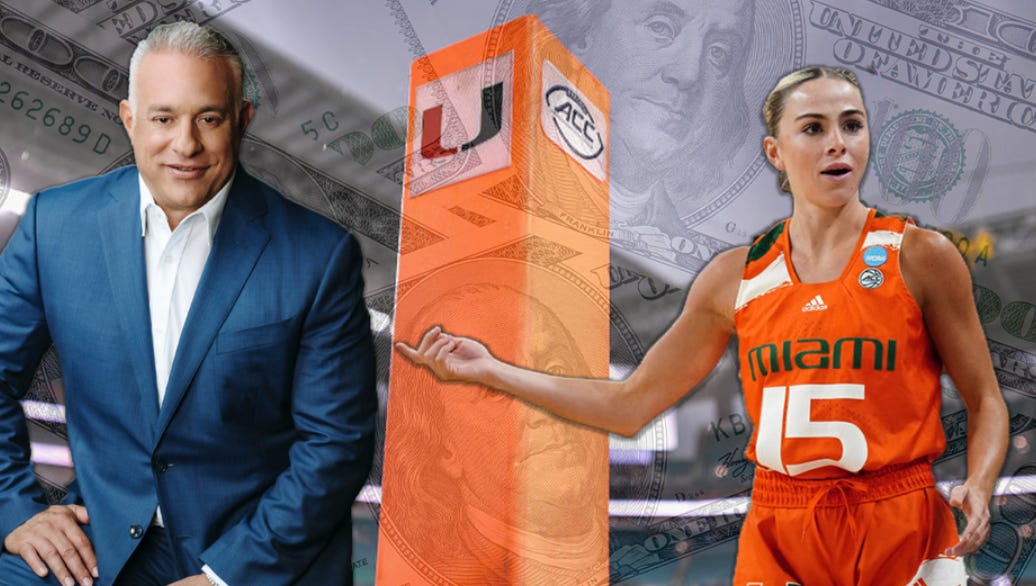
There are still plenty of unknowns in the NIL world that need clarification, revision, guidance, direction, and leadership. Leaders in college athletics and the federal government are feigning leadership, but in reality, they are offering minimal, if any, impactful contributions to the future of NIL.
The state of Louisiana has put together an NIL task force that is operational and hard at work to do something—or nothing. The problem with the NIL world is that the proverbial goalposts keep moving. While I agree with having a task force dedicated to NIL, a 22-person committee surely feels like overkill. Furthermore, the broad swath of stakeholders covered by this task force likely includes too many voices in the matter.
The Louisiana task force will likely be similar to President Trump’s Council on Sports, Fitness, and Nutrition (aka mostly on NIL). These groups will stay apprised of current events and happenings in NIL but will likely yield very little action.
States have been wasting resources trying to preempt federal laws, only to have federal mandates take priority recently via President Trump’s executive order. Clearly, the NCAA has been deficient in helping states and schools understand what’s coming up and how schools and states can proactively address the regular changes and modifications to NIL regulations.
My conversations years ago with an athletic director at a Florida-based Division I school included discussions about collaboration with lawmakers and decision-makers in hopes of positively affecting schools in the state. I would say that, outside of Florida basketball (which hasn’t generated much more revenue than it had in the years prior to NIL), the state has mostly been in decline—with football trending in the wrong direction and highly publicized NIL issues (see: Jaden Rashada (UF), Leonard Hamilton (FSU), and Miami’s “NIL King,” John Ruiz). Perhaps those meetings between elected officials and state education leaders could have been tabled—or maybe they could have achieved more positive outcomes?
Also, for reasons not fully clear to me, about 80% of the country allows NIL for high schoolers. Somewhat curiously, football hotbeds like Ohio and Texas don’t permit NIL earnings for high schoolers. We have a College Sports Commission to regulate the NIL earnings of adults, but what about regulating NIL for high schoolers, who actually need oversight because they are minors? Is there not yet enough money in that space for some regulatory body to skim off the top? A $750k deal—even if fabricated—lets you know that NIL in high school is imminent. If you track the flow of athletes to and from schools in Southern California, you’ll see that NIL is alive and well in the talent hotbed from Los Angeles down to the Mexican border.
We don’t have consistent NIL policies for high schoolers, we certainly don’t have consistent NIL policies for college athletes, and yet we’re surprised when schools operate in the grey areas? The typical college athletic department mantra is that the school is planning to be sued by athletes over any number of issues regardless of how they do or don’t follow the rules, so they’d prefer to have great sports teams in the face of potential, hypothetical, likely impending lawsuits. Sounds stressful.
This is a reminder that many people fail upward—or are beholden to special interests—and those people are often athletic administrators or politicians. Both groups transact in dealings with multi-millionaires and provide exclusive access to highly coveted resources and opportunities. Some are bought and paid for, but both live in a culture of favors and preferential treatment. There are very talented politicians and athletic administrators, but they aren’t above receiving favors. I remember being surprised that an admissions director I knew was flying on private donor planes. In hindsight, I shouldn’t have been surprised about a clear and obvious conflict of interest being so casually enjoyed, but life lessons are often best learned through firsthand, perspective-altering experiences.
In closing, I look forward to seeing the busy work created by these task forces. Hopefully no one keeps track of actual deliverables from these meetings, because if history shows us anything, the group could conceivably do more harm than good—especially if it’s the underinformed leading the underinformed.



